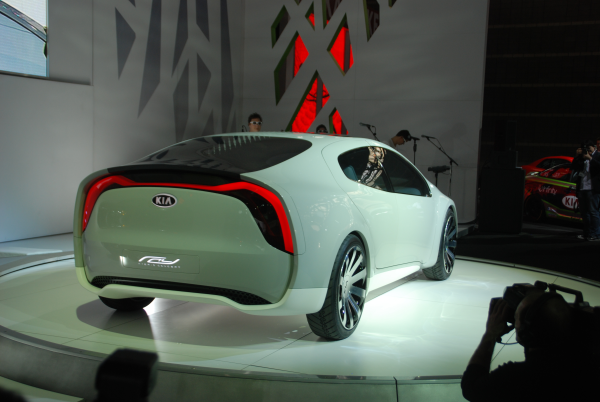The relationship between Americans (I can't speak for other cultures, but I suspect this at least crosses the Atlantic) and cars is a special one. The first bonding, if you will, comes as a teenager approaches the age of aquiring first a learner's permit, then a full driver's license. The cars from that age become special in the mind of the new driver, particularly those beyond the reach of the novice of ordinary means.
I was lucky, coming of driving age during what most automotive critics routinely label as the glory days of the 20th century for cars--the 1960s. Muscle cars reigned and quirky sports cars from Europe were available and we hadn't yet focused on the negative aspects of the internal combustion engine.
The names alone evoke the time. GTO. MGB. Road Runner. Alfa Romeo. Cyclone. TR6. Javelin. The list could continue for pages. That alone signifies what an incredible time it was.
Like most of my contemporaries, those enticing nameplates were well beyond my financial reach, but they remain to this day my automotive icons. My stories of the cars of that day, whether or not I actually got to drive them, continue to entertain succeeding generations.
But, I would propose that the driver coming of age this decade (2010-20) may have stumbled into a new golden age. It's a different time; in my day, the automotive discussion was all about performance and style and the currency was measured in 0-60 or slalom times, fuel injection and cubic inches. Now, the talk is as likely to run to grams/mile of CO2, esoteric battery chemistry or issues such as whether you want to own or simply rent a car.
The new choice is not V6 or V8, but EcoBoost or CNG, Clean Diesel or Plug-in Hybrid. The choices go on and on and will continue to expand in the coming years. Already in Brazil the typical choice for their tri-fuel vehicles is: gasoline, ethanol or CNG.
More choice will be confusing for many consumers, but I think the coming generations will embrace it, make it the new normal and help usher in a new era of glory days.



